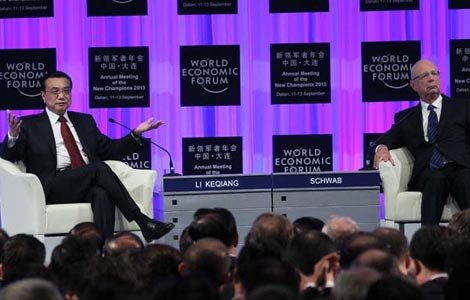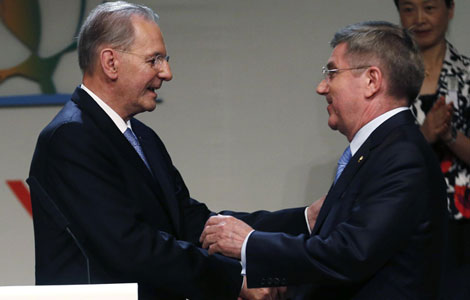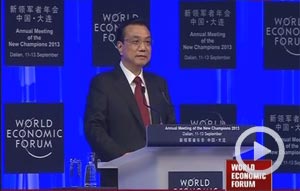Reducing poverty gains momentum in Asia
Updated: 2013-09-12 09:16
By Zhang Yuwei at the Unitied Nations (China Daily)
|
||||||||
In 2010, the UNDP and China signed a Memorandum of Understanding for strengthened south-south cooperation. Since then China has been increasingly opening up to international collaboration and advice around its foreign aid. That same year, the UNDP was able to pilot tri-lateral cooperation with China and third countries and help China share its development expertise with other developing countries.
"It marked an important step in the active exploration for a new type of cooperation between China and UNDP," said Wang Min, Deputy Permanent Representative of China to the UN. Regional strategic cooperation is an important component of realizing the major development goals, Wang added.
The report also showcases successful development projects in Asia-Pacific countries including Vietnam, India, and Laos in the past five years, reflecting UNDP Asia Pacific's $5.7 billion resources in development programs in strengthening democratic governance, responding to crises and energy efficiency.
The report covers the results achieved in 36 countries and territories in the region, including 2.6 million people benefiting from the employment related programs conducted during that time, and 11.9 million additional people being able to vote. UNDP's institutional and policy work also led to a $1 billion increase in government investment in disaster risk reduction in seven disaster prone countries.
The Asia-Pacific region has reached the Millennium Development Goals (MDGs) - a set of development goals agreed by 192 UN member states at the Millennium Summit - of halving poverty by 2015. Eight countries of the region have moved from low-income to middle-income between 2000 and 2011, according the report.
As the 2015 deadline of achieving the MDGs draws closer and the UN is considering a post-2015 framework for the mission to carry on and follow through, the Asia-Pacific region will continue to leverage changes for better lives.
"Asia-Pacific has a tremendous potential for more inclusive development that is possible with advances in gender equality," said Rebeca Grynspan, associate administrator for UNDP.
"Although much has been achieved in, for example, girls' educational attainment, women's economic and political empowerment continues to be a pressing priority for the region," Grynspan noted.
Contact the writer at yuweizhang@chinadailyusa.com
(China Daily USA 09/12/2013 page2)
- Can mobile money alleviate poverty in rural China?
- Eradicating poverty still important
- Vice premier urges effective poverty relief efforts
- Growth cuts role of China in global poverty fight
- Focus on energy efficiency
- China to further promote energy-efficient vehicles
- China electricity consumption growth gathers pace

 Another iPhone4 explodes while charging
Another iPhone4 explodes while charging
 Premier stresses transformation of the economy
Premier stresses transformation of the economy
 Soyuz capsule returns from space station
Soyuz capsule returns from space station
 China's Christian churches reduce leaders' age ceiling
China's Christian churches reduce leaders' age ceiling
 Student's rare blood bonds Kazakhstan and China
Student's rare blood bonds Kazakhstan and China
 Apple's low-end phone price disappointing
Apple's low-end phone price disappointing
 US marks 9/11 anniversary
US marks 9/11 anniversary
 German Bach elected as IOC president
German Bach elected as IOC president
Most Viewed
Editor's Picks

|

|

|

|

|

|
Today's Top News
Can China withstand global funds shifts?
China Daily Asia Weekly wins media award
Report questions US firms pursuing cloud computing in China
Reducing poverty gains momentum in Asia
China turns to US sorghum for animal feed
China's global firms face 'trust gap'
Li stresses transformation of economy
US delivers weapons to Syrian rebels
US Weekly

|

|






